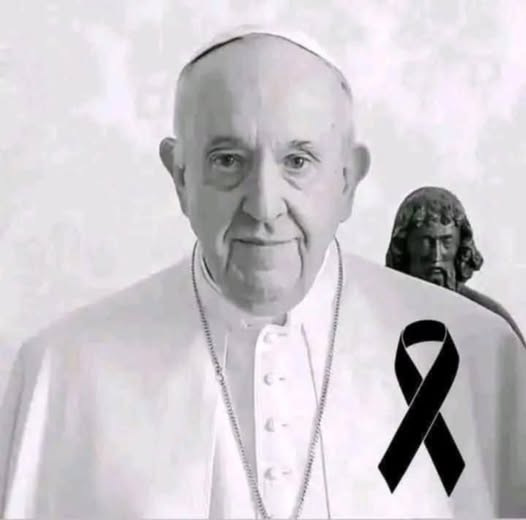Pope Francis is in a critical condition after experiencing a severe asthmatic respiratory crisis early Saturday morning. His health took a turn for the worse, requiring high-flow oxygen therapy to help stabilize his breathing. Medical tests also revealed he was suffering from anemia, prompting doctors to administer a blood transfusion. The Vatican released a statement late Saturday, acknowledging that while he continues to fight, he remains in a precarious situation and is not yet out of danger.
Although the Pope was in greater discomfort than the day before, he stayed alert and conscious, spending much of the day resting in his armchair. The Vatican characterized his condition as “reserved,” signaling the seriousness of the situation. This setback comes as he continues his battle against pneumonia, which has persisted for the past week. Just a day earlier, doctors had reassured the public that his life was not in immediate danger but emphasized that his recovery would be challenging. He is expected to remain under hospital care for at least another week as doctors closely monitor his progress.
The Pope’s hospitalization follows growing concerns over his increasingly complex health condition. Doctors confirmed that he has been diagnosed with pneumonia affecting both lungs, leading to further adjustments in his treatment plan. His medical team remains vigilant, working to manage the infection and ensure he has the best possible chance of recovery. Despite their efforts, the situation remains delicate, and his health continues to be a matter of serious concern.
Pope Francis, born Jorge Mario Bergoglio on December 17, 1936, in Buenos Aires, Argentina, is the 266th leader of the Roman Catholic Church. His journey to the papacy is marked by a lifelong devotion to faith, service, and humility.
Born to Italian immigrants in a modest neighborhood, young Jorge grew up with a deep sense of community and religious commitment. Although he initially pursued studies in chemistry, he felt a strong calling to the priesthood, leading him to join the Society of Jesus (Jesuits) in 1958. His religious formation emphasized education, discipline, and spiritual development, shaping him into the leader he would one day become.
In 1969, Bergoglio was ordained as a priest and went on to serve in various capacities within the Jesuit order. He became known for his dedication to education, spiritual guidance, and deep empathy for those in need. His leadership skills and unwavering commitment to the Church led to his appointment as Archbishop of Buenos Aires in 1998, where he became widely respected for his humility and tireless work on behalf of the poor and marginalized.
In 2001, he was elevated to the rank of cardinal by Pope John Paul II. During his tenure, Cardinal Bergoglio became a vocal advocate for social justice, championing the rights of the underprivileged and speaking out against inequality. His approach was characterized by a deep concern for the well-being of the most vulnerable members of society.
On March 13, 2013, following the resignation of Pope Benedict XVI, Cardinal Bergoglio was elected as the 266th pope of the Roman Catholic Church. Choosing the name Francis, in honor of St. Francis of Assisi, he signaled his commitment to humility, simplicity, and service to others. This choice set the tone for his papacy, which has been defined by a focus on compassion, inclusion, and reform.
Since taking office, Pope Francis has worked tirelessly to emphasize the values of mercy, kindness, and social responsibility. He has been a strong advocate for environmental stewardship, economic fairness, and the rights of migrants. His teachings on poverty, social justice, and human dignity have resonated with millions worldwide, making him one of the most influential religious figures of modern times.
His leadership has also been marked by efforts to reform the Church, promoting transparency and accountability. He has consistently urged a more open and inclusive approach, encouraging dialogue on sensitive topics and fostering a spirit of acceptance within the Catholic community.
Despite his ongoing health challenges, Pope Francis remains a symbol of resilience and compassion. His ability to connect with people from all walks of life, his dedication to social causes, and his willingness to challenge long-standing traditions have made his papacy unique. As he continues to navigate his health struggles, his influence and message of hope endure, inspiring countless individuals around the world.
